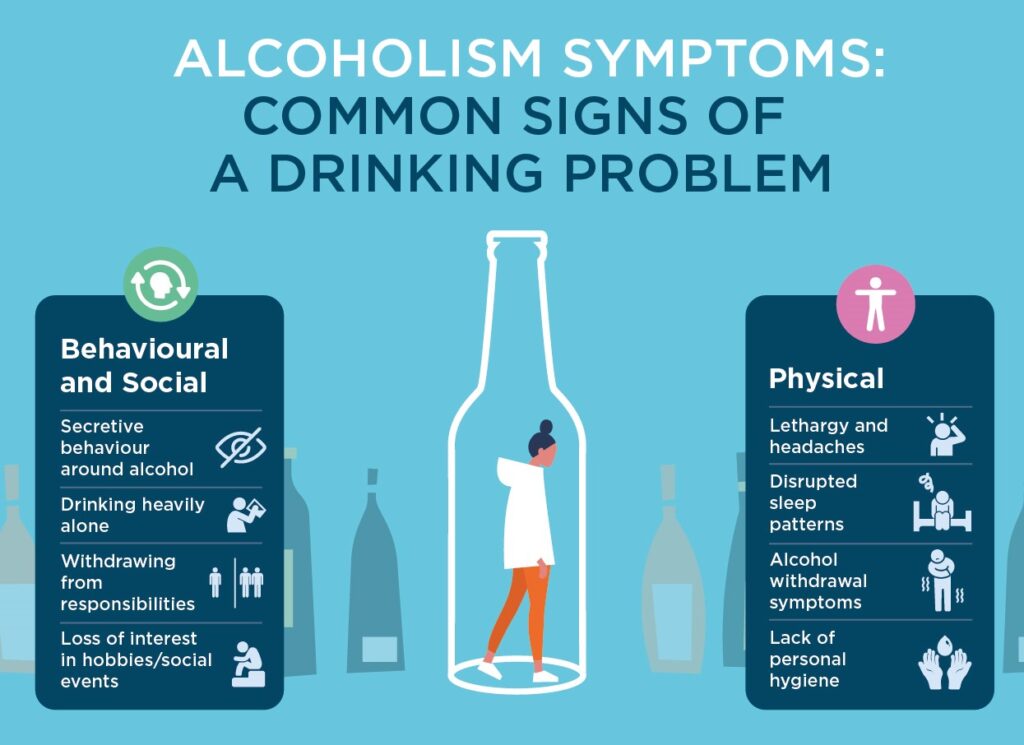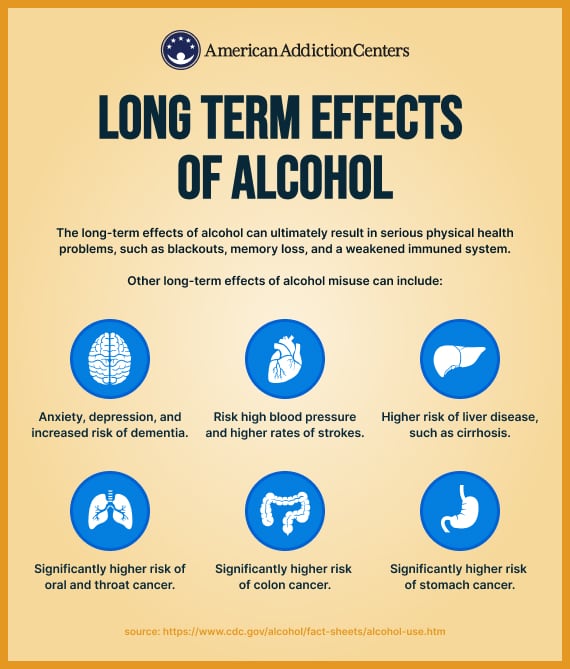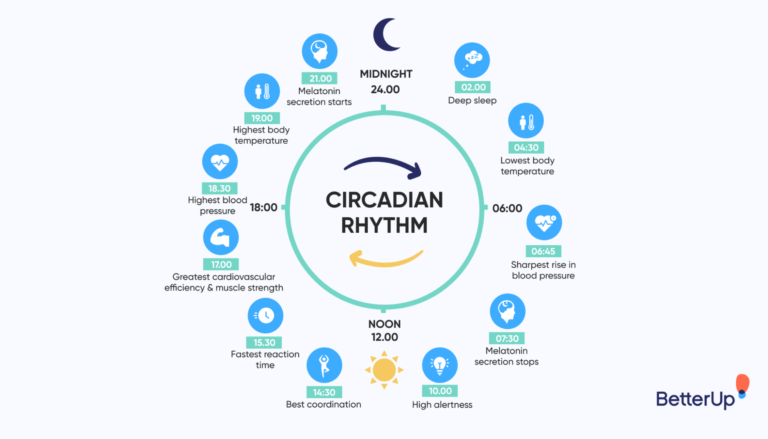Alcohol Addiction: How to Recognize and Recover from It

Table of Contents
Signs and Symptoms of Alcohol Addiction

Alcohol addiction is a serious and complex condition that affects millions of people worldwide. It is essential to understand the signs and symptoms of alcohol addiction to identify the problem early and seek appropriate help. While the signs and symptoms may vary from person to person, there are some common indicators to look out for.
One of the primary signs of alcohol addiction is a strong craving or compulsion to consume alcohol. Individuals may find it challenging to control or limit their drinking despite negative consequences, such as relationship problems, work or school issues, or health concerns. They may spend a significant amount of time obtaining, consuming, or recovering from the effects of alcohol. Additionally, tolerance, where more alcohol is needed to achieve the desired effect, and withdrawal symptoms when alcohol is not consumed, are characteristic of alcohol addiction.
Physical symptoms can also accompany alcohol addiction. These can range from mild to severe and may include blackouts, tremors, slurred speech, impaired coordination, and liver problems. Chronic alcohol use can lead to serious health issues, including liver disease, cardiovascular problems, digestive disorders, and an increased risk of certain cancers. Understanding these physical effects can help individuals recognize the impact of alcohol addiction on their well-being.
If you or someone you know is experiencing any of these signs and symptoms, it is crucial to seek professional help. Alcohol addiction is a treatable condition, and early intervention can greatly improve a person’s chances of successful recovery. In the following sections, we will explore different aspects of alcohol addiction, including its emotional and social impacts, the link between alcohol addiction and mental health disorders, treatment options, and long-term effects.
Understanding the Physical Effects of Alcohol Addiction

Alcohol addiction is a complex condition that affects both the mind and body. When it comes to understanding the physical effects of alcohol addiction, it is important to recognize the toll that excessive alcohol consumption can take on various systems within the body.
One of the primary areas impacted by alcohol addiction is the liver. As the body’s primary detoxification organ, the liver is responsible for breaking down alcohol and removing it from the body. However, chronic alcohol abuse can overwhelm the liver, leading to inflammation and potential liver damage. This can result in conditions such as alcoholic hepatitis, cirrhosis, and even liver cancer. It is crucial to understand the gravity of these physical effects and the importance of seeking professional help for alcohol addiction.
Furthermore, alcohol addiction can also have a significant impact on the cardiovascular system. Excessive alcohol consumption can raise blood pressure, increase the risk of developing irregular heart rhythms, and weaken the heart muscle itself. These effects can contribute to the development of cardiovascular diseases such as heart failure, heart attack, and stroke. It is vital for individuals struggling with alcohol addiction to be aware of these potential consequences and to seek appropriate medical care and support.
By gaining a comprehensive understanding of the physical effects of alcohol addiction, individuals can make more informed decisions about their health and seek the necessary help. It is important to remember that recovery is possible, and early intervention can significantly improve outcomes.
Identifying the Emotional and Behavioral Indicators of Alcohol Addiction

Alcohol addiction is a complex and multifaceted issue that affects not only a person’s physical health but also their emotional and behavioral well-being. Identifying the emotional and behavioral indicators of alcohol addiction is crucial in order to recognize and address this problem effectively.
Emotionally, individuals struggling with alcohol addiction may experience increased anxiety, depression, mood swings, and irritability. These emotional changes can be a direct result of the chemical imbalances in the brain caused by alcohol abuse. Additionally, alcohol addiction can impact one’s ability to cope with stress, leading to a reliance on alcohol as a means of escape or self-medication.
Behaviorally, there are several signs that may indicate a person’s alcohol addiction. These can include frequent and excessive consumption of alcohol, the inability to control or limit alcohol intake, withdrawal symptoms when attempting to stop drinking, neglecting responsibilities such as work or family obligations, and engaging in risky behaviors while under the influence. It is important to note that these signs may vary from person to person and can be influenced by factors such as tolerance levels and individual circumstances.
Identifying these emotional and behavioral indicators is the first step toward addressing alcohol addiction. By recognizing these signs, individuals and their loved ones can seek appropriate help and support, leading to a healthier and happier life.
Exploring the Social Impacts of Alcohol Addiction
Alcohol addiction can have profound social impacts that extend beyond the individual struggling with the addiction. One of these impacts is the strain it can place on relationships, particularly with family members and close friends. The erratic behavior and mood swings associated with alcohol addiction can lead to conflict and tension within these important relationships, often causing them to become strained or even broken.
Furthermore, alcohol addiction can also have detrimental effects on one’s professional life. The impaired judgment and decreased productivity that result from excessive alcohol consumption can lead to job loss or difficulties in maintaining employment. Additionally, alcohol addiction can damage one’s reputation and credibility, making it challenging to rebuild one’s professional life once the addiction is addressed.
These social impacts can be devastating for both the individual struggling with alcohol addiction and those around them. It is crucial to address these issues and seek appropriate professional help in order to mitigate the negative consequences and rebuild damaged relationships and careers.
The Link Between Alcohol Addiction and Mental Health Disorders
Alcohol addiction and mental health disorders often coexist, creating a complex and intertwined web of challenges for individuals struggling with both conditions. According to the National Survey on Drug Use and Health, nearly 9 million adults in the United States had a co-occurring mental health and substance use disorder in 2019 alone.
The interplay between alcohol addiction and mental health disorders is multifaceted. Many individuals turn to alcohol as a way to cope with symptoms of mental illness, such as depression, anxiety, or post-traumatic stress disorder. However, the temporary relief provided by alcohol is often short-lived and can exacerbate mental health symptoms in the long run. Additionally, chronic alcohol abuse can trigger or worsen mental health disorders, leading to a vicious cycle of self-medication and mental distress.
Research has shown that certain mental health disorders are particularly prevalent among individuals with alcohol addiction. For instance, the Substance Abuse and Mental Health Services Administration reports that about one-third of individuals with major depressive disorder also have a co-occurring substance use disorder, with alcohol being the most common substance involved.
Furthermore, the impact of alcohol addiction on mental health extends beyond just the individual affected. Family members, friends, and loved ones often bear the brunt of the emotional and psychological toll caused by both conditions. The strain on relationships, increased conflict, and overall disruption of daily life can further contribute to the complexities of alcohol addiction and mental health disorders.
Recognizing the link between alcohol addiction and mental health disorders is crucial for effective treatment and recovery. By addressing both conditions simultaneously, individuals can have a better chance of achieving long-lasting sobriety and improved mental well-being. It is essential that individuals seek professional help and support from qualified healthcare providers who can offer comprehensive care and evidence-based interventions tailored to their specific needs. Only through a holistic and integrated approach can individuals navigate the challenging path towards recovery from both alcohol addiction and mental health disorders.
Certainly! Here’s information on the link between alcohol addiction and mental health disorders, presented in a table format:
| The Link Between Alcohol Addiction and Mental Health Disorders | Key Aspects | Implications and Considerations |
|---|---|---|
| Co-Occurrence of Disorders | – Common Co-Occurrence: High prevalence of mental health disorders co-occurring with alcohol addiction. | – Bidirectional Relationship: Substance use can exacerbate mental health symptoms, and vice versa. |
| – Dual Diagnosis: Term used when an individual experiences both a substance use disorder and a mental health disorder. | – Complex Treatment Needs: Dual diagnosis requires integrated and comprehensive treatment approaches. | |
| Self-Medication and Coping | – Self-Medication: Individuals may use alcohol to cope with symptoms of mental health disorders. | – Temporary Relief: Alcohol can provide temporary relief, leading to a cycle of dependency. |
| – Escaping Reality: Using alcohol as a means to escape or numb emotional pain and distress. | – Long-Term Consequences: Self-medicating can contribute to the development of alcohol dependence and worsen mental health symptoms. | |
| Impact on Severity of Symptoms | – Increased Severity: Substance use can intensify the severity of mental health symptoms. | – Impaired Functioning: The combination may result in greater impairment in social, occupational, and daily functioning. |
| – Impaired Treatment Response: Alcohol use can hinder the effectiveness of mental health treatment. | – Treatment Challenges: Dual diagnosis requires specialized interventions addressing both substance use and mental health issues. | |
| Common Mental Health Disorders | – Depression and Anxiety: High prevalence of alcohol addiction co-occurring with depression and anxiety disorders. | – Comorbidity Patterns: Understanding specific comorbid patterns helps tailor treatment approaches. |
| – Trauma-Related Disorders: Post-traumatic stress disorder (PTSD) often coexists with alcohol use disorders. | – Trauma-Informed Care: Trauma-informed approaches are crucial for individuals with PTSD and alcohol addiction. | |
| Neurobiological Impact | – Neurotransmitter Changes: Alcohol affects neurotransmitters, impacting mood regulation and mental health. | – Brain Reward System: The reward system can become dysregulated, contributing to addictive behaviors. |
| – Dual Impact on the Brain: The combination of alcohol and mental health disorders has a compounded effect on the brain. | – Increased Vulnerability: Neurobiological changes may increase vulnerability to addiction and mental health relapse. | |
| Risk Factors and Common Triggers | – Common Risk Factors: Shared risk factors such as genetic predisposition, environmental stressors, and childhood trauma. | – Identifying Triggers: Recognizing common triggers helps in developing coping strategies. |
| – Stress and Coping: High-stress levels may contribute to the onset and maintenance of both alcohol addiction and mental health disorders. | – Holistic Approach: Treatment should address stress management as part of a holistic approach. | |
| Treatment Approaches | – Integrated Treatment: Simultaneous treatment for both alcohol addiction and mental health disorders. | – Collaborative Care: Requires collaboration between addiction specialists and mental health professionals. |
| – Medication-Assisted Treatment: Medications addressing both substance use and mental health symptoms. | – Individualized Plans: Tailoring treatment plans based on the unique needs and challenges of each individual. | |
| Relapse Prevention Strategies | – Identifying Triggers: Recognizing and addressing triggers for both substance use and mental health relapse. | – Coping Skills Development: Building a repertoire of coping skills to manage stressors and cravings. |
| – Lifestyle Changes: Adopting healthy lifestyle changes to support recovery from both conditions. | – Long-Term Maintenance: Focus on long-term strategies to prevent relapse and promote sustained recovery. |
Recognizing the Early Warning Signs of Alcohol Addiction
Recognizing the early warning signs of alcohol addiction is crucial for both individuals struggling with alcohol use disorder and their loved ones. By being aware of these signs, it becomes easier to intervene and seek appropriate help before the addiction worsens. While the symptoms of alcohol addiction may vary from person to person, there are certain indicators that can indicate the presence of a problem.
One of the most common early warning signs of alcohol addiction is an increased tolerance to alcohol. This means that individuals will need to consume greater amounts of alcohol in order to achieve the desired effect. They may also experience withdrawal symptoms when they try to cut back or stop drinking, such as anxiety, irritability, trembling, or even seizures. Additionally, individuals struggling with alcohol addiction may prioritize drinking over other activities or responsibilities, neglecting work, personal relationships, and hobbies. They may also engage in risky behaviors while under the influence of alcohol, such as drunk driving or unprotected sex. It’s important to pay attention to these signs and take necessary steps to address alcohol addiction early on.
How to Approach a Loved One Struggling with Alcohol Addiction
Approaching a loved one who is struggling with alcohol addiction can be an incredibly difficult and sensitive situation. It is important to approach the conversation with empathy, understanding, and a genuine desire to help. Here are a few steps you can take to approach your loved one in a supportive manner:
1. Choose the right time and place: Timing is crucial when initiating a conversation about alcohol addiction. Find a time when your loved one is sober and calm, and choose a private and comfortable setting where you can talk openly without distractions.
2. Express concern and empathy: Start the conversation by expressing your concern for their well-being and your love and care for them. Use “I” statements to avoid sounding accusatory or judgmental, and let them know that you are there to support them on their journey towards recovery.
Remember, every individual and situation is unique, so it’s important to tailor your approach based on what you know about your loved one. It may also be helpful to consult with a professional, such as a counselor or addiction specialist, who can provide guidance and support during this process.
The Importance of Seeking Professional Help for Alcohol Addiction
Seeking professional help for alcohol addiction is crucial for individuals who are struggling with this condition. Alcohol addiction is a complex and chronic disease that requires comprehensive treatment from experienced professionals. Professional help provides individuals with the support, guidance, and evidence-based approaches needed for successful recovery.
One of the key benefits of seeking professional help is the access to trained and licensed addiction specialists. These professionals have the expertise and knowledge to assess the severity of alcohol addiction, identify underlying mental health issues, and develop personalized treatment plans. They are equipped with the latest research and evidence-based techniques to address the physical, emotional, and behavioral aspects of alcohol addiction.
Another important aspect of professional help is the availability of a range of treatment options. Addiction treatment programs often include a combination of therapies, counseling, medications, and support groups. These approaches are tailored to meet the individual needs of each person seeking help. Additionally, professional help promotes a holistic approach towards recovery, addressing various aspects of life including relationships, career, and overall well-being.
In summary, seeking professional help for alcohol addiction is essential for a successful recovery journey. It provides individuals with the necessary expertise, guidance, and support needed to overcome the challenges associated with addiction. With access to a range of evidence-based treatments, individuals can embark on a journey towards a healthier and happier life.
Exploring Different Treatment Options for Alcohol Addiction
Alcohol addiction is a complex and serious condition that requires proper treatment and support. When it comes to exploring different treatment options for alcohol addiction, it is important to understand that what works for one person may not work for another. The success of a treatment approach often depends on the individual’s specific needs and circumstances.
One commonly used treatment option for alcohol addiction is counseling or therapy. This can be done in individual or group settings and aims to address the underlying factors that contribute to alcohol addiction. Through therapy, individuals can gain insight into their triggers and develop healthy coping mechanisms. Therapy can also help in rebuilding relationships that may have been strained due to alcohol addiction.
Another treatment option for alcohol addiction is medication. There are certain medications available that can help reduce cravings and withdrawal symptoms, making it easier for individuals to stay on track with their recovery. These medications are typically prescribed by healthcare professionals and can be an important part of a comprehensive treatment plan.
In addition to counseling and medication, support groups can also play a vital role in the recovery process. Support groups provide individuals with a sense of community, where they can share their experiences, discuss challenges, and receive encouragement from others who are going through similar struggles. Many find comfort and strength in the support and understanding of their peers.
It is important to remember that there is no one-size-fits-all approach to treating alcohol addiction. Each person is unique, and their treatment plan should be tailored to their specific needs. A combination of counseling, medication, and support groups can often yield the best results, but it is important to consult with healthcare professionals to determine the most suitable treatment options for individual circumstances. With the right support and resources, individuals can overcome alcohol addiction and lead fulfilling lives in sobriety.
The Role of Therapy and Counseling in Alcohol Addiction Recovery
Therapy and counseling play a crucial role in the recovery process for individuals struggling with alcohol addiction. These therapeutic interventions provide a safe and supportive environment for individuals to explore the underlying causes of their addiction, develop coping strategies, and learn essential life skills that promote long-term sobriety.
One of the primary goals of therapy and counseling in alcohol addiction recovery is to help individuals gain insight into the factors that contribute to their substance use. By examining past experiences, traumas, and underlying mental health conditions, therapists can guide individuals towards a better understanding of the root causes of their addiction. This self-awareness can be instrumental in breaking the cycle of addiction and making long-lasting changes in behavior and thought patterns.
In addition to exploring the underlying causes, therapy and counseling also teach individuals practical coping strategies to manage triggers, cravings, and stressors that may arise during their recovery journey. These techniques may include learning effective communication skills, stress management techniques, and developing a healthy support system. By equipping individuals with these tools, therapy and counseling provide them with the necessary skills to navigate the challenges they may face in maintaining sobriety.
Furthermore, therapy and counseling serve as a platform for individuals to address and manage any co-occurring mental health disorders they may have. Studies have shown that mental health disorders and substance abuse often coexist, leading to a vicious cycle of self-medication and worsening symptoms. Through therapy, individuals can receive specialized treatment for conditions like depression, anxiety, or trauma, improving their overall mental well-being and reducing the risk of relapse.
Overall, therapy and counseling are invaluable components of alcohol addiction recovery. They provide individuals with a safe space to explore the underlying causes of their addiction, develop essential coping strategies, and address any co-occurring mental health disorders. By engaging in therapy and counseling, individuals can receive the support and guidance they need to achieve and maintain long-term sobriety.
Understanding the Detoxification Process in Alcohol Addiction Recovery
In the journey towards alcohol addiction recovery, one crucial step is the detoxification process. Detoxification, also known as detox, involves removing alcohol from the body and managing the withdrawal symptoms that may occur. It is an essential phase that prepares individuals for the subsequent stages of treatment.
During detoxification, the body undergoes a series of physiological changes as it adjusts to the absence of alcohol. This process can be challenging, both physically and emotionally, as the body craves the substance it has become dependent on. Common withdrawal symptoms may include nausea, sweating, tremors, anxiety, and restlessness. In severe cases, individuals may experience seizures or delirium tremens, a potentially life-threatening condition. Therefore, it is crucial that detoxification takes place under professional medical supervision to ensure safety and provide the necessary support throughout this critical phase.
While the duration of the detoxification process varies from person to person, it typically lasts around one to two weeks. However, it is important to note that detox alone is not a sufficient treatment for alcohol addiction. It is merely the first step towards recovery. Following detox, individuals are encouraged to engage in further treatment options, such as therapy and counseling, to address the underlying causes of their addiction and develop effective coping mechanisms for long-term sobriety.
If you or a loved one is considering detoxification as part of the alcohol addiction recovery journey, it is vital to seek professional help and guidance. Addiction specialists and medical professionals can provide the necessary expertise, support, and resources to ensure a safe and successful detox process. Remember, you don’t have to face this challenge alone, and reaching out for help is the first step towards reclaiming a healthier and happier life.
Developing a Comprehensive Recovery Plan for Alcohol Addiction
Developing a comprehensive recovery plan is an integral part of addressing alcohol addiction and increasing the chances of long-term sobriety. This plan serves as a roadmap to guide individuals through the recovery journey and ensure they have the necessary support and resources to overcome their addiction. While each person’s recovery plan will be unique, there are some key elements that should be considered.
Firstly, it is crucial to seek professional help when developing a recovery plan for alcohol addiction. Working with addiction specialists, such as counselors, therapists, or addiction treatment centers, can provide the necessary expertise and support to create an effective plan. These professionals can conduct assessments, evaluate the severity of the addiction, and help identify any underlying mental health issues that may contribute to the addiction.
Another essential aspect of a comprehensive recovery plan is education and awareness. Understanding the nature of alcohol addiction, its physical and psychological effects, as well as the potential triggers and relapse risks, can empower individuals to make informed decisions and take necessary precautions. Equipping oneself with knowledge about the recovery process and available treatment options can also help individuals set realistic goals and expectations, increasing the likelihood of successful outcomes.
In addition, a comprehensive recovery plan should address the need for a strong support system. Surrounding oneself with individuals who are supportive, understanding, and committed to their recovery can make a significant difference in the journey towards sobriety. This can include family members, close friends, or support groups where individuals can share their experiences, struggles, and triumphs.
Furthermore, incorporating healthy lifestyle changes is vital in a recovery plan. This may include adopting regular exercise routines, practicing stress reduction techniques like meditation or yoga, and making dietary adjustments to support physical wellbeing. Developing healthy coping mechanisms and alternative activities to replace alcohol use can also play a crucial role in maintaining sobriety.
Overall, developing a comprehensive recovery plan for alcohol addiction is a personalized process that requires professional guidance, education, social support, and lifestyle changes. It is important for individuals to recognize that recovery is a journey, and setbacks may occur. However, with a well-structured plan in place, individuals can navigate the challenges, stay focused on their goals, and successfully overcome alcohol addiction.
Tips for Maintaining Sobriety and Preventing Relapse
Maintaining sobriety and preventing relapse can be challenging, but with the right strategies and support, it is possible to achieve long-term recovery. Here are some tips to help you on your journey:
1. Build a strong support system: Surround yourself with individuals who understand and support your recovery goals. This can include family members, friends, or support groups like Alcoholics Anonymous. Having a network of people who understand your struggles and can provide encouragement and accountability can make a big difference.
2. Develop healthy coping mechanisms: Find healthy ways to manage stress and deal with negative emotions rather than turning to alcohol. This could involve practicing mindfulness techniques, engaging in regular physical exercise, pursuing hobbies you enjoy, or seeking therapy or counseling. By finding alternative ways to cope with life’s challenges, you can reduce the risk of relapse.
Remember, maintaining sobriety is a lifelong journey, and it’s important to be patient and kind to yourself. If you or a loved one is struggling with alcohol addiction, seeking professional help and guidance is crucial for long-term success. By taking proactive steps and utilizing the appropriate resources, you can overcome addiction and achieve a happier and healthier life.
Support Systems for Individuals in Alcohol Addiction Recovery
A strong support system is crucial for individuals in alcohol addiction recovery. Having a network of supportive individuals can make a significant difference in the recovery process. Whether it is from family, friends, support groups, or healthcare professionals, these individuals can provide the necessary encouragement, guidance, and accountability needed to maintain sobriety and prevent relapse.
Family members can play a pivotal role in supporting their loved ones in alcohol addiction recovery. By offering love, understanding, and encouragement, they can create a safe and nurturing environment that promotes healing and growth. It is important for family members to educate themselves about alcohol addiction and its effects to better understand the challenges their loved ones may face. Additionally, support groups such as Alcoholics Anonymous can provide individuals in recovery with a community of like-minded individuals who understand their struggles and can offer guidance based on personal experiences. These groups can provide a sense of belonging and acceptance that is essential for long-term recovery.
The Long-Term Effects of Alcohol Addiction and How to Overcome Them
Alcohol addiction can have severe long-term effects on both the physical and mental well-being of individuals. Excessive and prolonged alcohol consumption can lead to a wide range of health issues, including liver diseases such as cirrhosis and liver cancer, cardiovascular problems like high blood pressure and heart failure, and gastrointestinal disorders. Additionally, chronic alcohol misuse can weaken the immune system, making individuals more susceptible to infections and illnesses.
Furthermore, the psychological impacts of alcohol addiction should not be overlooked. Alcohol abuse has been closely linked to mental health disorders such as depression, anxiety, and even alcohol-induced psychosis. These conditions can significantly affect an individual’s quality of life and can often exacerbate their addiction, creating a vicious cycle that is difficult to break.
Nevertheless, it is important to remember that there is hope for individuals battling alcohol addiction. Overcoming long-term effects requires commitment, support, and professional help. Seeking treatment from qualified medical professionals who specialize in addiction medicine is crucial for a successful recovery. These experts can develop personalized treatment plans that may include a combination of therapies, counseling, medications, and support groups to address both the physical and psychological components of alcohol addiction. With the right resources and support systems in place, individuals can navigate the path to recovery, reclaim their lives, and overcome the long-term effects of alcohol addiction.
What are some common signs and symptoms of alcohol addiction?
Some common signs and symptoms of alcohol addiction include a strong urge to drink, inability to control or stop drinking, withdrawal symptoms when not drinking, neglecting responsibilities and relationships, and experiencing cravings or intense desire for alcohol.
What are the physical effects of alcohol addiction?
Alcohol addiction can lead to various physical effects, such as liver damage, cardiovascular problems, weakened immune system, digestive issues, and increased risk of cancer.
How can one identify the emotional and behavioral indicators of alcohol addiction?
Emotional and behavioral indicators of alcohol addiction can include mood swings, irritability, depression, anxiety, aggression, isolation from loved ones, neglecting hobbies or activities, and experiencing memory lapses or blackouts.
What are the social impacts of alcohol addiction?
Alcohol addiction can have significant social impacts, including strained relationships, decreased productivity at work or school, financial problems, legal issues, and social isolation.
Is there a link between alcohol addiction and mental health disorders?
Yes, there is a strong link between alcohol addiction and mental health disorders. Alcohol addiction can worsen or contribute to the development of conditions such as depression, anxiety, bipolar disorder, and post-traumatic stress disorder (PTSD).
How can one recognize the early warning signs of alcohol addiction?
Early warning signs of alcohol addiction may include increased tolerance to alcohol, drinking alone or in secret, experiencing withdrawal symptoms, neglecting responsibilities, and prioritizing drinking over other activities.
How should one approach a loved one struggling with alcohol addiction?
Approaching a loved one struggling with alcohol addiction requires empathy, understanding, and non-judgmental communication. It is important to express concern, offer support, and encourage them to seek professional help.
Why is seeking professional help important for alcohol addiction?
Seeking professional help for alcohol addiction is important because addiction is a complex condition that often requires specialized treatment. Professionals can provide guidance, support, and evidence-based interventions to help individuals overcome addiction.
What are the different treatment options for alcohol addiction?
Treatment options for alcohol addiction may include residential rehabilitation programs, outpatient counseling, support groups like Alcoholics Anonymous (AA), medication-assisted treatment, and individual therapy.
What role does therapy and counseling play in alcohol addiction recovery?
Therapy and counseling are crucial components of alcohol addiction recovery. They help individuals address underlying issues, develop coping skills, prevent relapse, and promote long-term sobriety.
How does the detoxification process work in alcohol addiction recovery?
The detoxification process in alcohol addiction recovery involves safely managing withdrawal symptoms as the body eliminates alcohol. It is typically done under medical supervision to ensure safety and comfort.
How can one develop a comprehensive recovery plan for alcohol addiction?
Developing a comprehensive recovery plan for alcohol addiction involves setting goals, creating a support network, engaging in therapy and counseling, incorporating healthy lifestyle changes, and utilizing various resources for ongoing support.
What are some tips for maintaining sobriety and preventing relapse?
Tips for maintaining sobriety and preventing relapse include avoiding triggers, practicing self-care, engaging in healthy activities, attending support group meetings, seeking ongoing therapy, and building a strong support system.
Are there support systems available for individuals in alcohol addiction recovery?
Yes, there are various support systems available for individuals in alcohol addiction recovery, including support groups like Alcoholics Anonymous (AA), counseling services, online communities, and sober living environments.
What are the long-term effects of alcohol addiction and how can they be overcome?
The long-term effects of alcohol addiction can include liver disease, cardiovascular problems, cognitive impairment, relationship difficulties, and mental health disorders. Overcoming these effects often requires ongoing treatment, support, and a commitment to maintaining sobriety.






